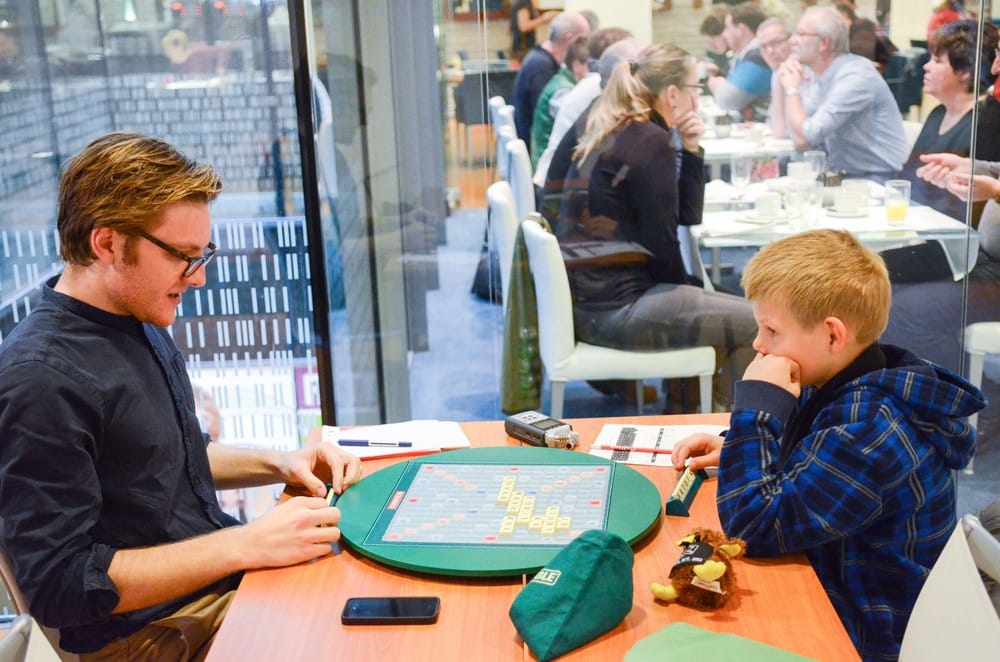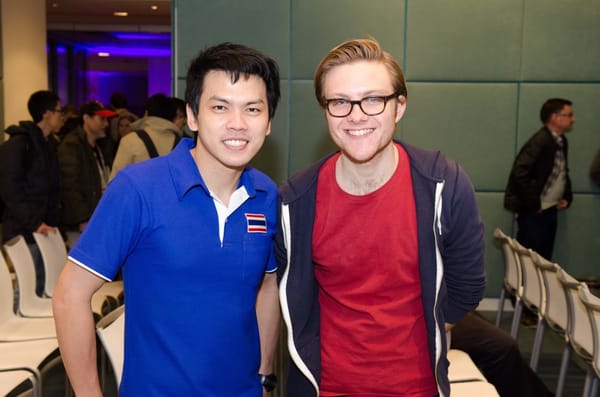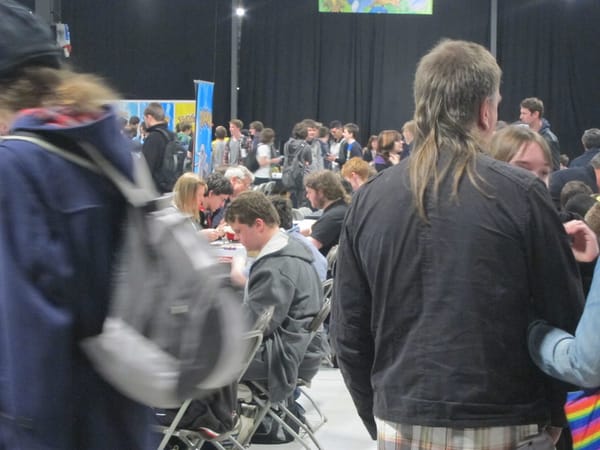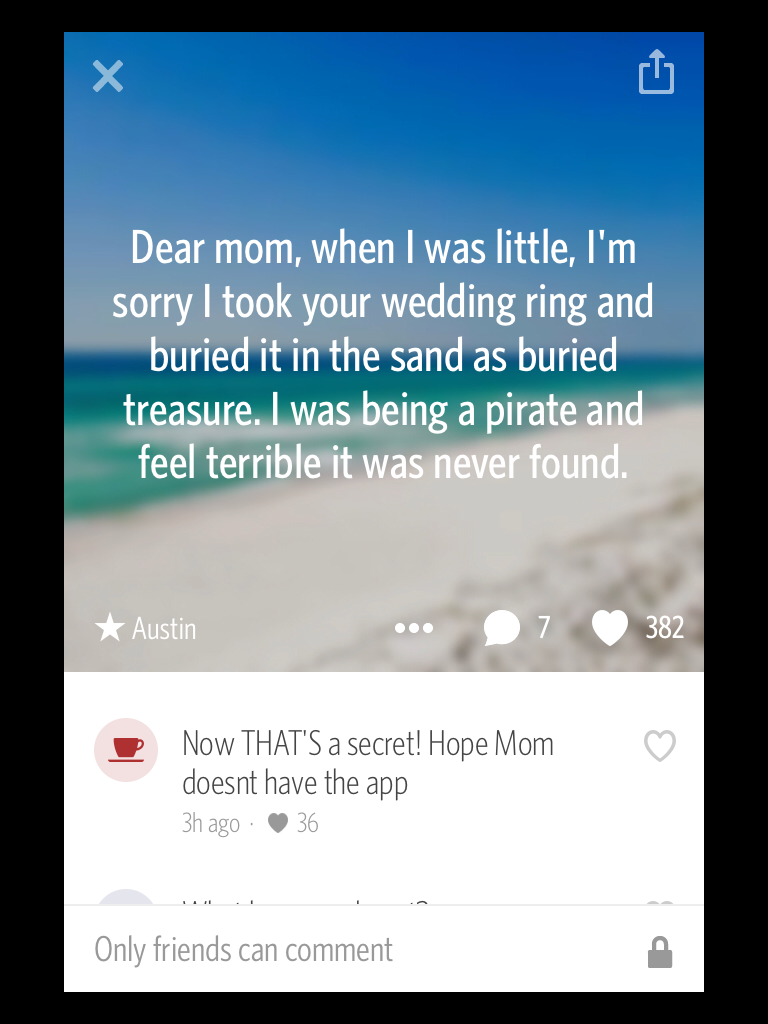Scrabble World Championships 2014: Grudge Match Against an 8 year-old
Away from the top of the leader board, one of the most notable players here at tournament is New Zealand’s Lewis Hawkins.

Away from the top of the leader board, one of the most notable players here at tournament is New Zealand’s Lewis Hawkins. What sets him out from the rest of the crowd is that, being aged 8, he’s at least a decade younger than anyone else here. Learning from my failures in adopting the direct approach with Nigel, I managed to convince him have a chat with me over a game the following day.
Buoyed by my date with Lewis, I continued to rove field-recorder in hand. Still feeling my way into the Scrabble scene, driven in equal measures by my own ignorance and potential interviewees’ relative reticence, I found myself asking similar questions to each willing participant. Question: “If you had one tip to a layman Scrabbler, what would it be?” Almost without exception, the response was to learn all the two letter words. Yet somehow this didn’t seem enough. I wanted more in depth secrets, some juice, to give a window into the mind of a proper player and see better how their approach differed from that of you or I. I added it to my notes and pressed on.
Later that evening, as I listened back over my recordings through the haze of the Czech bar we’d holed up in (smoking in bars and clubs is still legal in the Czech Republic), I had what alcoholics refer to as a moment of clarity. Here I was practically listening on repeat to different SCRABBLE grandees say that learning the two letter words is key; I had the biggest game of SCRABBLE in my life lined up for the following day and yet my knowledge of two-letter words was lacking.
I’m not sure if it was basement-priced pivo or the circumstances that caught up with me, but I descended into a state of minor panic. After twenty minutes of pleading with what sporadic roaming 3G my phone could muster, I scribbled down the first list of two letter words I could find. Outside, the sun had long since set. I had my showdown at nine, the next morning. That gave me around 12 hours to know my JO’s from my PO’s and my EG’s from my AG’s , as I whispered myself slowly to sleep with my wordsheet.
As eight year olds go, Lewis Hawkins seemed pretty well travelled. Having made it to Prague via Bangkok, he’s then going on to Dubai (to play in the Youth SCRABBLE Championships no less) before a mini European tour and a Christmas spent with family in Norway.
Sitting down to face my SCRABBLE destiny, I let Lewis do the scoring, largely for fear of him showing me up if try to do it myself. Either way, the speed of his calculation is dizzying. While I count up each tile, lifting up them to check what bonus was below, he skips up each number – “six, seven, eleven, fourteen, twenty eight” he counted aloud, opening the scoring with ‘COVED’ – like a dancer ascending stairs in a hurry.
Occasionally, I dare to proffer up a total and on more than one occasion he corrects my maths, with a matter-of-fact insouciance that could only be got away with by someone of such tender years. Despite some initial misgivings over whether COVED was a real word or not I parallel played on with MASH, putting to good use my newly freshened knowledge of ME and AD.
I begin with a topic that I imagine to be a gold mine of conversation for an eight-year old: that of Christmas presents. He seems a little disinterested, almost a little too mature to be talking toys, so I get down to brass tacks. He explains how he started playing on the iPad – the first in a generation of SCRABBLE champions first introduced to the game on a tablet, I wonder? He tells me he practises about an hour a day during the week but often the whole day at weekends and during the holidays - ‘unless my mum kicks me off the iPad’ he adds.
He drops down RUE to the end of my JOKE played a turn or two before and presses down each tile in order with his little fingers. Four turns in, he’s already on triple figures and has a lead of 39. Scanning over my tiles through a subconscious face palm, I mutter something about being in touching distance. “Quite close,” says Lewis, seemingly getting the emollient comments in early before the gap becomes unassailable.
“What do your mates make SCRABBLE? Are you converting them?” I ask as I play GLORY, with no small hint of irony, for a piddly nine points. “All of them are very good at sport”, he tells me in his gentle Antipodean drawl. “all my friends play at least three sports. I only play….’ He pauses a moment. “If you count SCRABBLE as a sport, I only play two.” The other, he tells me, is soccer, rarely taking his eyes off the tiles as he plays BONNETS.
If the systematic dismantling I was suffering at the hands of Lewis wasn’t bad enough, the rate at which he did it was alarming. Every so often I remember that Lewis is in primary school. I struggle to remember what my primary school years were like. It puts into perspective how mature Lewis is for his age, with a level of focus that many adults would aspire to.
“Have you ever played SCRABBLE before?” I couldn’t tell if this was innocent conversation from the pint-sized kiwi or exquisite chutzpah, but either way, I cracked. Despite being away from the cloying smoke of the bar cellar and (as far as I could tell) with the last of the pivo out my system, the wave of nauseous panic returned. My pupils dilated, my pulse quickened. Beyond the board, the world blurred into nothingness and my focus closed down to the rack.
It was just me and these seven tiles, and I was getting beaten by an eight year old. Albeit modern SCRABBLE’s answer to an eight-year-old Mozart but I was getting beat nonetheless and, a handful of turns in, it was looking to be a hiding.
Something needed to be done.
SUZE. SUZE was my only option.
With a ‘Z’ on my rack, I needed to make it count and SUZE was the only way I could play it and land on a triple word score. The only issue was that I had just pulled SUZE out of thin air.
My mind became a flurry of thoughts – crepe suzette, suzerainty, Peep Show’s Big Suze – as I scrabbled the recesses of my mind for a shred of authenticity. I was losing to an eight year old and my only option was to try made-up words.
Sitting back in my chair and pulling the best look of nonchalance I could muster, I slapped down SUZE for a whopping 43. For a moment Lewis was silent. He looked at the board, then down at his rack and then back to the board. He could challenge and I’d be rumbled, my SUZE ruse would be up. Seemingly unflapped by my speculative SUZE, he counters with DETAIN. I live to fight another rack.
It’s been a busy schedule for Lewis so far, he’s been here a week and played both days of the last chance qualifier for the SCT and every day of the open tournament that has been run concurrently for those who failed to make the main event. I’ve done well to have him squeeze me in before his day’s play begins proper. He is more than just figuratively having me for breakfast.
He came very close to making the SCT himself: of the three under-18 entrants in the last chance qualifier, one was guaranteed entry. Over the course of his eight games he was drawn against neither of the other two but they played each other, one beating the other by a monstrous margin and skewing the rankings in the favour of the victor. Lewis was effectively frozen out of contention. Any sense of disappointment can’t have lasted too long. I later discovered that at the World Youth SCRABBLE Championship in Dubai (his next stop after Prague) he won the prize for best player in both his own age category and the one above.
LAVE stares back at me from my rack and feeling a little cocky from my close shave with SUZE, I throw caution to the wind once again. I ask him if he has any favourite words, to see if he can top the tale of ZYGANTRA one of the English players had told me the day before. “This word,” he says, scribbling it down on the sheet we’re using for scoring, “This is my favourite word I played in the tournament”. I look at it and baulk. TAENIAE. All of a sudden SUZE don’t seem all that bad. “Do you know what it means?” I ask, now weary of disconnect between spelling and definition in the SCRABBLE player’s consciousness. Lewis gives a little mute shake of his head, before challenging my LAVE.
Any word can be challenged in a game of SCRABBLE, the clocks are stopped and the dictionary, automated into a computer search bar, is consulted. To my amazement, it checks out and gifts me a further five points. I would’ve felt worse about so blindly guessing against a soon-to-be nine year old, but his margin stood not far off triple digits and it had dried up any pool of sympathy that might have been welling inside of me.
“It’s getting quite tense.” I say, mopping literal sweat off my brow. “Not really” comes the response. Clearly when you’re used to spanking septuagenarians with TAENIAE, losing five points to me on a challenge barely registers. I, however, was jubilant.
I ask Lewis if he thinks he could one day be World Champion. He hums a brief moment of deliberation, before admitting ‘probably not’. I wouldn’t be so pessimistic about his chances. Starting so young, his mind will be a sponge to all that rote learning of words that forms the mainstay of competitive SCRABBLE. Assuming he navigates his formative years with the same level head he’s shown me over the past half hour, come an adult, he’d be at a huge advantage.
Picking up the blank, he plays BANTING for 65 and cheekily reminds me I can challenge if I want. The word doesn’t spark even a glimmer of recognition but keen to avoid falling for his ploy, I play on. A few more outrageously hopeful words by me (PAISE apparently is allowed) Lewis rounds off the game, winning 372-273. As I pant a relieved sigh at managing to keep the difference within double digits (the marker of respectability, I tell myself) Lewis is already picking at the tiles, working out what other plays could have been made.
I scan over the scoresheet and finally ask him for his autograph. Some how, I doubt it’ll be his last.







